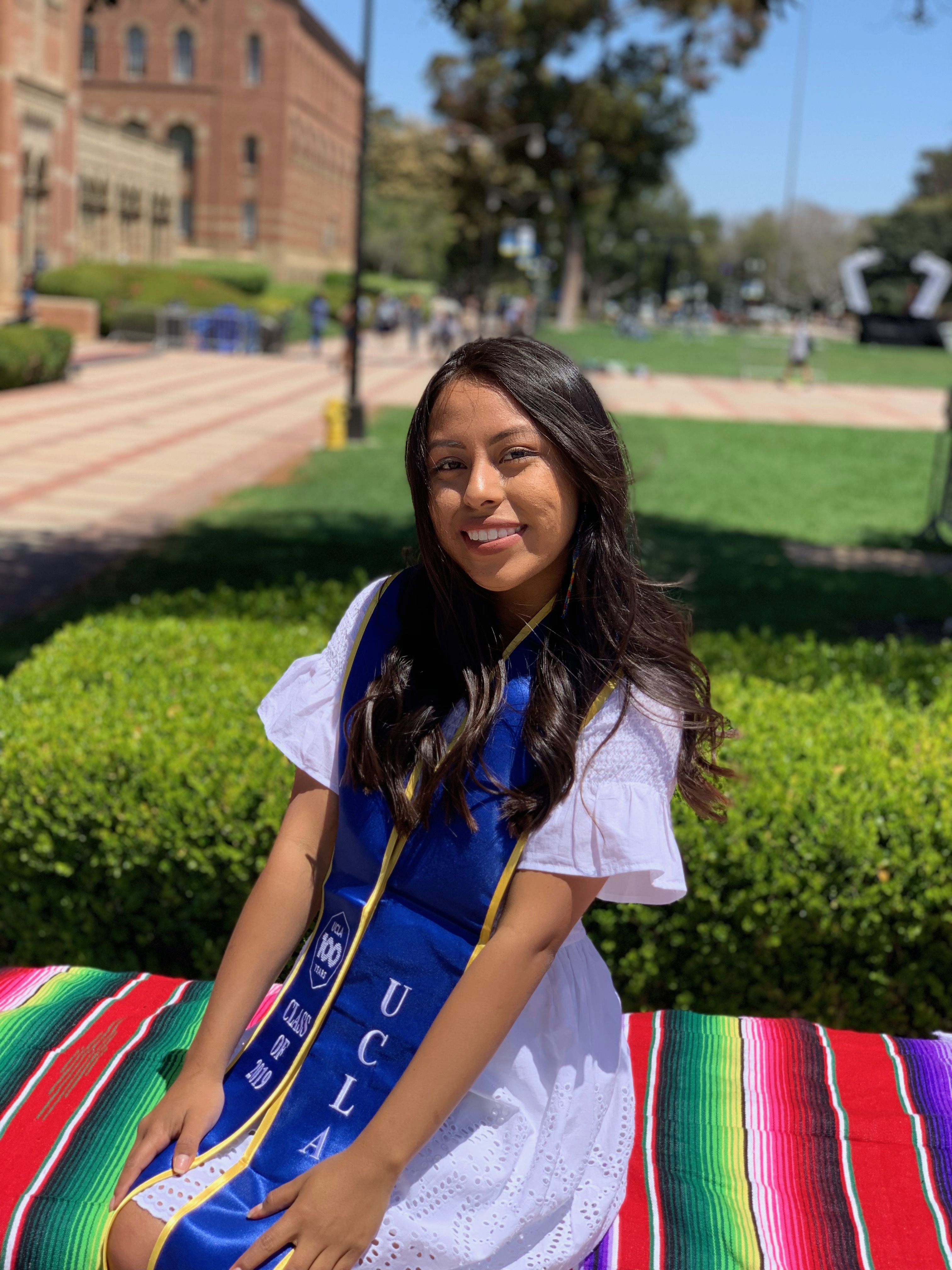2019 Labor Studies Graduate Q&A with Sarai Ramos, Visionary Mixtec Activist
Whisper Torres, Edith Elenes & Karla Martinez | June 20, 2019
To lift up the voices of the labor studies class of 2019, we interviewed recent graduates. Sarai Ramos is passionate about immigrant rights and food sovereignty. She majored in chicanx studies with minors in labor studies, education, and food studies. She was one of three students who spoke at the labor studies graduation ceremony this past Saturday. In this interview, she shares her labor studies memories and her plans for the future.
What made you want to join the labor studies program? What about the minor had the most impact on you?
I found out about the labor studies program during my second year at UCLA. I liked that the program is very interdisciplinary because you get to take economics classes, gender studies classes, and ethnic studies classes. Personally, as a DACAmented student who has worked multiple jobs, learning about labor rights is so important. What kept me interested and involved in this program is the dedicated staff and faculty, they have helped me grow holistically and develop necessary real-world skills.
Any advice for incoming freshman?
My advice for freshmen is to increase their consciousness and learn about the social conditions that affect them or their communities. I would say, find what issues you are truly passionate about and use them to ground you in the work that you do — it’ll definitely make your time at UCLA easier. I would also like to say, that for transfer students, this minor is a great way to get involved and learn a lot because you get to do hands-on work.
If you could visit any city right now, which would it be and why?
I would visit my hometown of Michapa, Oaxaca. That’s where my extended family, that I have not seen for 17 years, resides. Borders have separated so many families for years and I hope one day the borders that separate us will disappear.
Any plans after graduation?
I’m staying in Los Angeles and working on a community project that focuses Zapotec migrants at FIOB, a nonprofit organization dedicated to contributing to the development and self-determination of indigenous people. I will also be working as a Peer Learning Facilitator at UCLA. After the summer, I see myself working for a nonprofit organization that focuses on lifting up indigenous community voices. I am committing myself to going back home to put what I’ve learned into practice. As a Mixtec woman, I want to be an advocate and agent of change for my community back home.
Who is your role model and why?
Oralia Maceda and Odilia Romero; they are mujeres involved in FIOB. They are my role models because they are so powerful and they take up space in places where women’s voices are often silenced. But many other people inspire me, like field workers and service workers whose labor isn’t commonly acknowledged and who are actively resisting the systems that oppress them. Inspiration can be found all around us; I am inspired by those who resist.
What advice would you give your younger self?
As a working class migrant, I’ve had to unpack a lot of trauma throughout the years and I’d tell my younger me to love herself and celebrate the small accomplishments in life. As long as you stay grounded in something you truly believe in, you will be so powerful and resilient!


